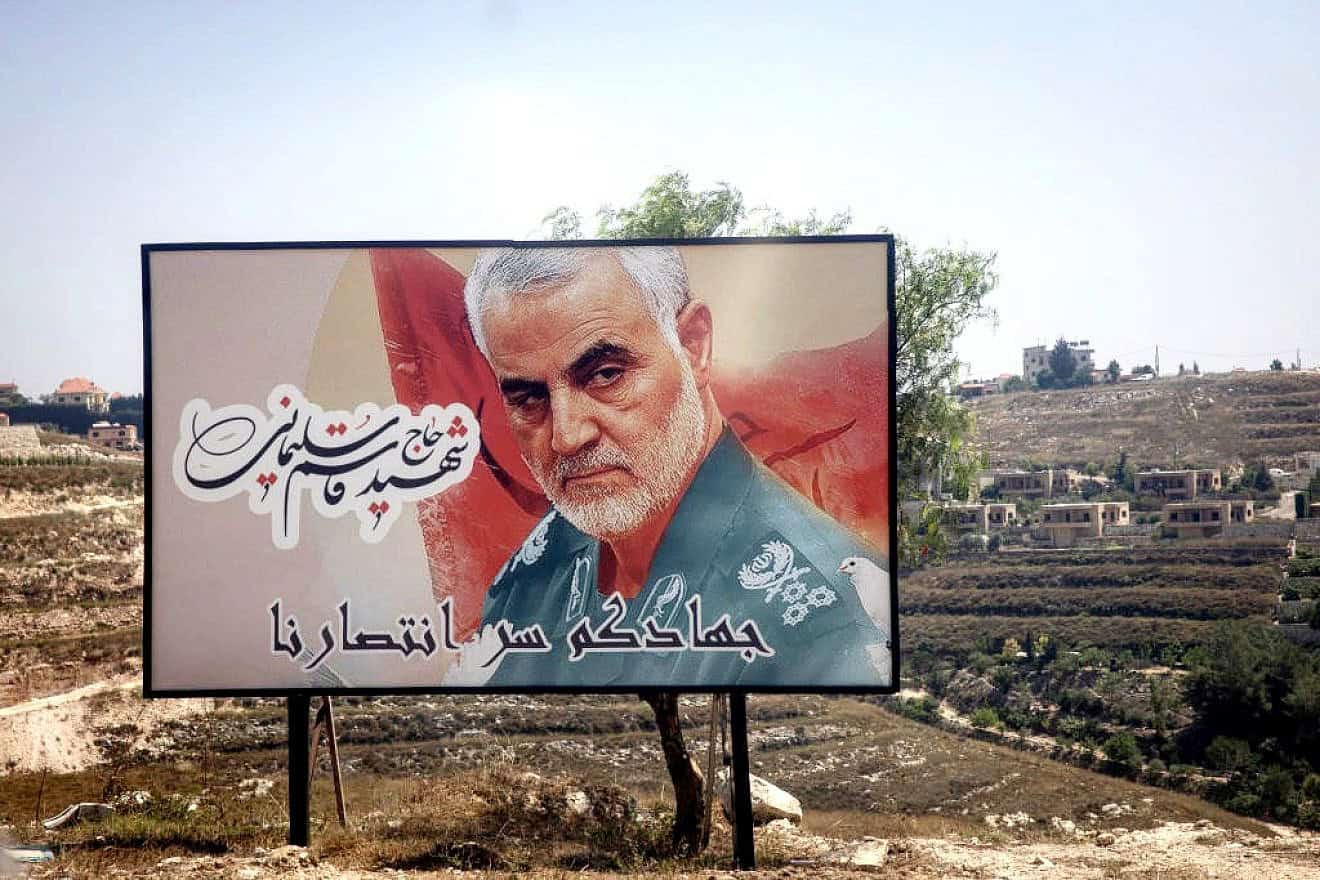The pointlessness of pursuing a two-state solution
Iran will never allow the Palestinians to negotiate peace with Israel.
By Lawrence Solomon
JNS
Jul 2, 2024

Apart from its own 780,000-strong armed forces, Iran has assembled a score of armed groups in countries neighboring Israel; all of which, like Iran, are committed to the eradication of the Jewish state.
The U.S., the E.U. and others in the West who are fixated on a two-state solution continually exhort Israel and the Palestinians to negotiate a peace agreement. This exhortation confuses a sideshow with the main act, because Iran and its proxies, not Israel and the Palestinians, call the shots.
Iran, which directs most of Israel’s enemies, will never permit a two-state solution. To ensure one doesn’t emerge, Iran has created its “Axis of Resistance,” which ”aims to annihilate and wipe out Israel from existence,” explained Abdul Majeed Awad of Hamas, an Axis member.
Iran’s Axis doesn’t seek a Palestinian state living side-by-side in peace with Israel, as two-state proponents fantasize. Iran seeks no Israeli state and has laid the groundwork to realize its goals.
“I have assembled for you six armies outside of Iran’s territory, and I have created a corridor 1,500 km long and 1,000 km wide, all the way to the shores of the Mediterranean Sea,” stated the late commander of Iran’s Islamic Revolutionary Guard Corps Qassem Soleimani in a 2019 speech to the Iranian joint military command. Soleimani was Iran’s most powerful general until a U.S. drone assassinated him in 2020.
“In this corridor, there are six religiously devout and popular divisions,” he said. “One army is in Lebanon. It is called Hezbollah. Another army is in Palestine, and it is called Hamas and the Islamic Jihad. One army is in Syria. Another army is in Iraq and is called the PMU, and another army is in Yemen and is called Ansar Allah.”
Iran’s ability to nullify prospects for a two-state solution was in evidence on Oct. 7 when it unleashed Hamas, its chief Gazan proxy, in the first large-scale implementation of its Axis doctrine. The attack successfully derailed Saudi Arabia’s anticipated decision to join the Abraham Accords, a defining event that would have advanced prospects for the two-state solution by formally establishing peace between Israel and its most prestigious Arab neighbor.
Iran provides Hamas with military training and $100 million a year, without which Oct. 7 wouldn’t have happened and future Oct. 7s wouldn’t threaten to reoccur “again and again,” as Hamas has vowed. Yet Hamas, which represents Israel’s main threat on its southern border, pales in comparison to Hezbollah, Israel’s main threat on its northern border. Hezbollah, which receives $700 million annually from Iran, has 150,000 rockets and missiles aimed at Israel.
The Palestinian state that the West envisions will primarily consist of Gaza, Judea and Samaria. With Gaza firmly in its grasp, Iran in 2018 began to extend its reach by arming proxies in Judea and Samaria. “The West Bank must be armed, just as Gaza,” tweeted Ayatollah Ali Khamenei, Iran’s Supreme Leader, in 2020.
His orders have been followed. “Recently 15 to 30 attacks are carried out daily in the West Bank by the resistance forces against the Zionist regime,” Ismail Qaani, the commander of Iran’s terrorist Quds Force, reported in 2023. Because of the increasing number of threats emanating from Judea and Samaria, Israel has repeatedly deployed the IDF to the territory. Israel’s Minister of Defense now characterizes Judea and Samaria as the seventh front in Israel’s existential war.
Hamas has become the most popular party in Judea and Samaria, where 73% of the Palestinian population endorses the Oct. 7 massacre. If an election were held today, Hamas would win handily against Fatah, the party that controls the Palestinian Authority, which ruled Gaza until Hamas overthrew it in a violent coup. Only 32% of Palestinians support a two-state solution—not that their opinion counts for much.
Iran and its proxies, including the
proxies that would rule Judea and Samaria if they became a sovereign
nation, all oppose the two-state solution because they oppose the
existence of Israel. In effect, they have a veto over the West’s
ambition for Middle East peace. Urging Israel and the P.A., who are
captive bystanders to the two-state issue, to make peace is a futile
endeavor that only deflects attention from the one state—Iran—that
actually stymies peace.
No comments:
Post a Comment